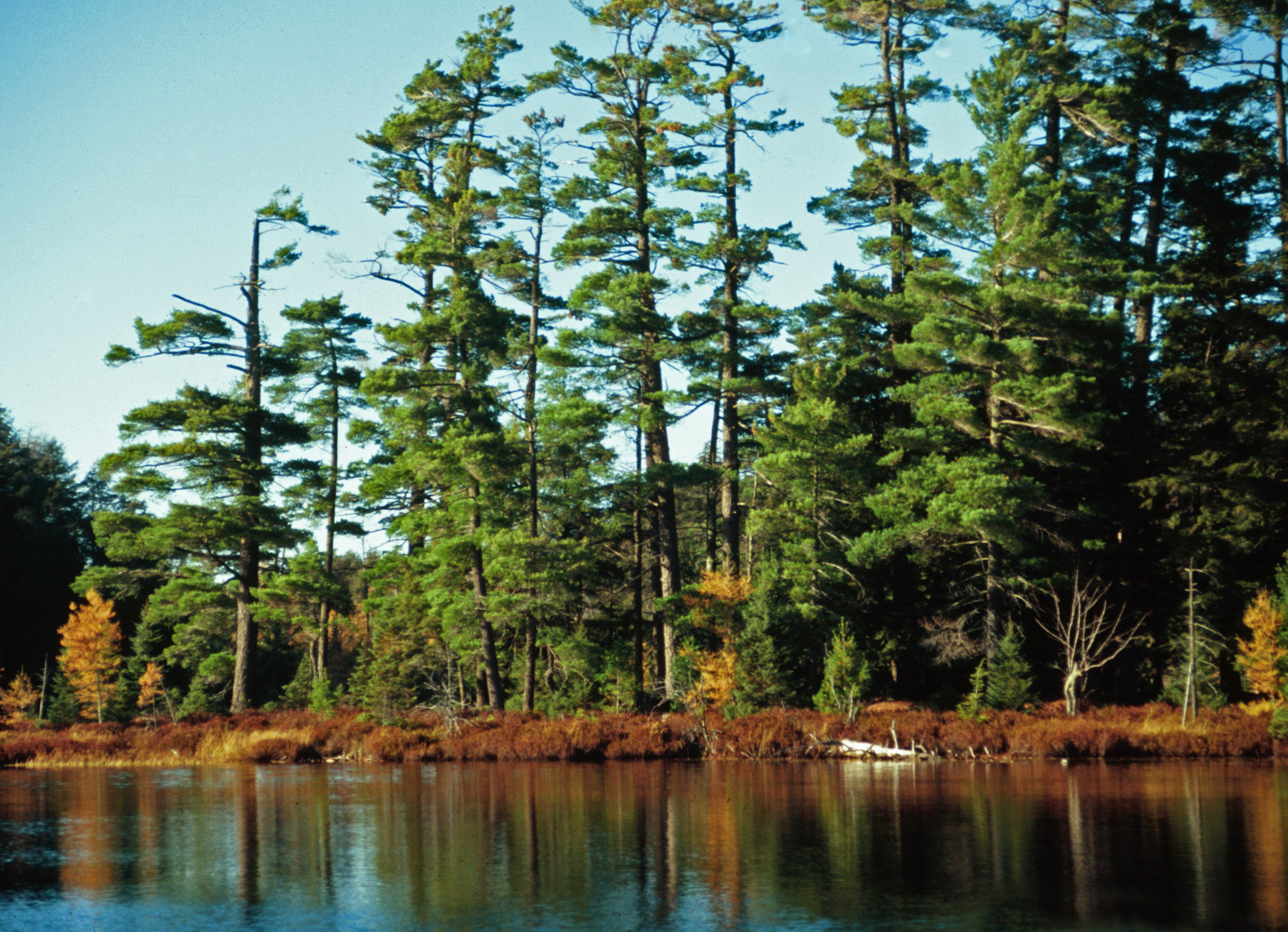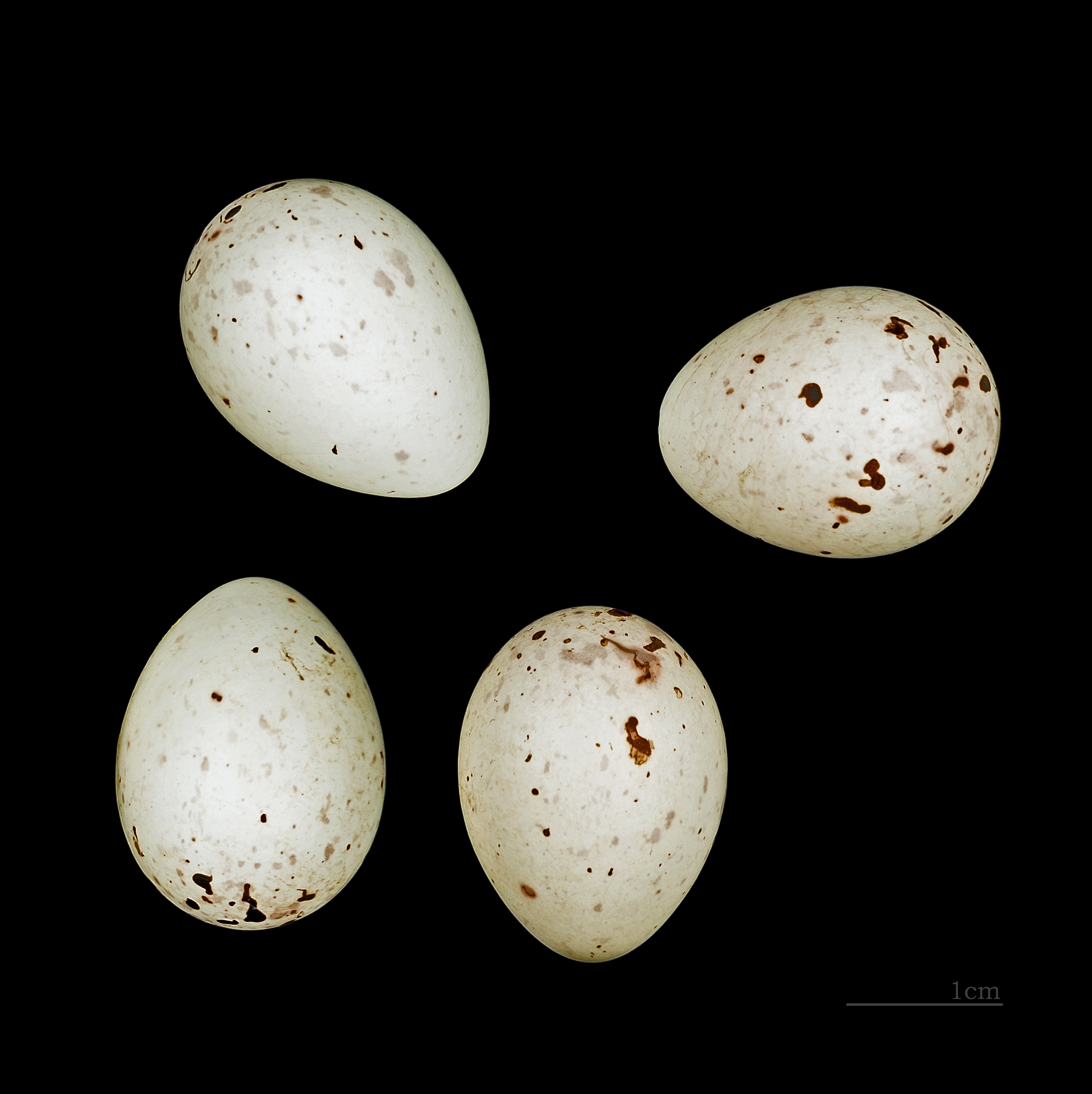|
Estivant Pines
Estivant Pines Nature Sanctuary is a nature sanctuary in Keweenaw County, Michigan. It is maintained and preserved by the Michigan Nature Association. The area was originally part of a 2,400-acre tract of land owned by Edward Estivant of Paris, who sold it to Calumet and Hecla Mining Company in 1947. Universal Oil acquired the area in 1968, and soon logged 300 acres of nearby forest. A fund-raising campaign by the Michigan Nature Association lead in 1973 to the purchase of 200 acres from Universal Oil. Three subsequent acquisitions, between 1989 and 2005, have expanded the sanctuary to 510 acres. The area protects one of the last old-growth white pine ('' Pinus strobus'') stands in Michigan. Two connected loop trails are in the sanctuary, the one-mile Cathedral Grove loop and the 1.2 mile Bertha Daubendiek trail. The Sanctuary includes some white pines growing more than 125 feet tall and dating back over 300 years, having established after a fire in about 1695. The forest predo ... [...More Info...] [...Related Items...] OR: [Wikipedia] [Google] [Baidu] |
Michigan Nature Association
Michigan Nature Association is a nonprofit conservation organization established in 1952. It has 176 nature sanctuaries in 58 counties throughout Michigan under its jurisdiction. History In 1951, a bird study group in the Macomb County Macomb County ( ) is a county located in the eastern portion of the U.S. state of Michigan, bordering Lake St. Clair, and is part of northern Metro Detroit. As of the 2020 Census, the population was 881,217, making it the third-most populous co ... was formed to protect wildlife, hoping to keep Michigan in a natural state. Their first project was protesting the destruction of a tern colony at Metropolitan Beach. Calling themselves the St. Clair Metropolitan Beach Sanctuary Association, they started weekend nature exhibits, guided tours, and published a study course. In 1955, the Junior Nature Patrol (JNP) was formed. With this growth, the group began looking to expand and do further conservation work. The first purchase of a sanctuary was ma ... [...More Info...] [...Related Items...] OR: [Wikipedia] [Google] [Baidu] |
Keweenaw County, Michigan
Keweenaw County (, ; , ) is a county in the Upper Peninsula of the U.S. state of Michigan, the state's northernmost county. As of the 2020 United States Census, the population was 2,046, making it Michigan's least populous county. It is also the state's largest county by total area, when the waters of Lake Superior are included in the total. The county seat is Eagle River. The county was set off and organized in 1861. It is believed "Keweenaw" is a corruption of an Ojibwe word that means "portage" or "place where portage is made"; compare the names of the nearby Portage Lake and Portage River which together make up the Keweenaw Waterway. Keweenaw County is part of the Houghton, Michigan, Micropolitan Statistical Area. Isle Royale, a national park which no longer has year-round inhabitants, was a separate county that was incorporated into Keweenaw County in 1897. Geography Two land masses comprise most of the land portion of the county: Isle Royale and the northeastern half ... [...More Info...] [...Related Items...] OR: [Wikipedia] [Google] [Baidu] |
Copper Harbor, Michigan
Copper Harbor is an Unincorporated area, unincorporated community and census-designated place (CDP) located in Keweenaw County, Michigan, Keweenaw County in the U.S. state of Michigan. It is located within Grant Township, Keweenaw County, Michigan, Grant Township. The population of the CDP was 136 as of the 2020 United States Census, 2020 census. The community is located at the northern tip of the Keweenaw Peninsula. Copper Harbor is also the northernmost permanently populated community and northernmost point of mainland in the state of Michigan. Due to its natural environment and surroundings, Copper Harbor is marketed as an all-season tourist destination and also contains Fort Wilkins Historic State Park. History Located at the very tip of the Keweenaw Peninsula, Keweenaw peninsula, the Copper Country was home to the Ojibwe, Ojibwe people prior to European settlement. In 1836, the Upper Peninsula of Michigan, Upper Peninsula was officially ceded from the Native Americans in the ... [...More Info...] [...Related Items...] OR: [Wikipedia] [Google] [Baidu] |
Michigan
Michigan () is a state in the Great Lakes region of the upper Midwestern United States. With a population of nearly 10.12 million and an area of nearly , Michigan is the 10th-largest state by population, the 11th-largest by area, and the largest by area east of the Mississippi River.''i.e.'', including water that is part of state territory. Georgia is the largest state by land area alone east of the Mississippi and Michigan the second-largest. Its capital is Lansing, and its largest city is Detroit. Metro Detroit is among the nation's most populous and largest metropolitan economies. Its name derives from a gallicized variant of the original Ojibwe word (), meaning "large water" or "large lake". Michigan consists of two peninsulas. The Lower Peninsula resembles the shape of a mitten, and comprises a majority of the state's land area. The Upper Peninsula (often called "the U.P.") is separated from the Lower Peninsula by the Straits of Mackinac, a channel that joins Lak ... [...More Info...] [...Related Items...] OR: [Wikipedia] [Google] [Baidu] |
Big White Pine (Pinus Strobus) In The Estivant Pines Sanctuary
Big or BIG may refer to: * Big, of great size or degree Film and television * ''Big'' (film), a 1988 fantasy-comedy film starring Tom Hanks * ''Big!'', a Discovery Channel television show * ''Richard Hammond's Big'', a television show presented by Richard Hammond * ''Big'' (TV series), a 2012 South Korean TV series * ''Banana Island Ghost'', a 2017 fantasy action comedy film Music * '' Big: the musical'', a 1996 musical based on the film * Big Records, a record label * ''Big'' (album), a 2007 album by Macy Gray * "Big" (Dead Letter Circus song) * "Big" (Sneaky Sound System song) * "Big" (Rita Ora and Imanbek song) * "Big", a 1990 song by New Fast Automatic Daffodils * "Big", a 2021 song by Jade Eagleson from ''Honkytonk Revival'' *The Notorious B.I.G., an American rapper Places * Allen Army Airfield (IATA code), Alaska, US * BIG, a VOR navigational beacon at London Biggin Hill Airport * Big River (other), various rivers (and other things) * Big Island (disambigua ... [...More Info...] [...Related Items...] OR: [Wikipedia] [Google] [Baidu] |
Calumet And Hecla Mining Company
The Calumet and Hecla Mining Company was a major copper-mining company based within Michigan's Copper Country. In the 19th century, the company paid out more than $72 million in shareholder dividends, more than any other mining company in the United States during that period. History In 1864, Edwin J. Hulbert discovered a copper-bearing section of what became known as the Calumet Conglomerate of Precambrian age. The find was in Houghton County, Michigan, between the rich Cliff mine to the northeast, and the copper mines of Portage Lake to the southwest, but a long way from either. Hulbert formed the Hulbert Mining Company in 1864 to acquire the land rights, before creating the Calumet Company in 1865, with Boston investors. The company spun off the Hecla Company the following year, and assigned shares in the new company to Calumet shareholders. Hulbert was a major shareholder in both companies, and was in charge of mine operations. But despite the rich ore, Hulbert did not hav ... [...More Info...] [...Related Items...] OR: [Wikipedia] [Google] [Baidu] |
Pinus Strobus
''Pinus strobus'', commonly called the eastern white pine, northern white pine, white pine, Weymouth pine (British), and soft pine is a large pine native to eastern North America. It occurs from Newfoundland, Canada west through the Great Lakes region to southeastern Manitoba and Minnesota, United States, and south along the Appalachian Mountains and upper Piedmont to northernmost Georgia and perhaps very rarely in some of the higher elevations in northeastern Alabama. It is considered rare in Indiana. The Native American Haudenosaunee named it the "Tree of Peace". It is known as the "Weymouth pine" in the United Kingdom, after Captain George Weymouth of the British Royal Navy, who brought its seeds to England from Maine in 1605. Distribution ''P. strobus'' is found in the nearctic temperate broadleaf and mixed forests biome of eastern North America. It prefers well-drained or sandy soils and humid climates, but can also grow in boggy areas and rocky highlands. In mixed ... [...More Info...] [...Related Items...] OR: [Wikipedia] [Google] [Baidu] |
Acer Saccharum
''Acer saccharum'', the sugar maple, is a species of flowering plant in the soapberry and lychee family Sapindaceae. It is native to the hardwood forests of eastern Canada and eastern United States. Sugar maple is best known for being the primary source of maple syrup and for its brightly colored fall foliage. It may also be known as "rock maple", "sugar tree", "birds-eye maple", "sweet maple", "curly maple", or "hard maple", particularly when referring to the wood. Description ''Acer saccharum'' is a deciduous tree normally reaching heights of , and exceptionally up to . A 10-year-old tree is typically about tall. As with most trees, forest-grown sugar maples form a much taller trunk and narrower canopy than open-growth ones. The leaves are deciduous, up to long and wide, palmate, with five lobes and borne in opposite pairs. The basal lobes are relatively small, while the upper lobes are larger and deeply notched. In contrast with the angular notching of the silver mapl ... [...More Info...] [...Related Items...] OR: [Wikipedia] [Google] [Baidu] |
Abies Balsamea
''Abies balsamea'' or balsam fir is a North American fir, native to most of eastern and central Canada (Newfoundland west to central Alberta) and the northeastern United States (Minnesota east to Maine, and south in the Appalachian Mountains to West Virginia). Description Balsam fir is a small to medium-size evergreen tree typically tall, occasionally reaching a height of . The narrow conic crown consists of dense, dark-green leaves. The bark on young trees is smooth, grey, and with resin blisters (which tend to spray when ruptured), becoming rough and fissured or scaly on old trees. The leaves are flat and needle-like, long, dark green above often with a small patch of stomata near the tip, and two white stomatal bands below, and a slightly notched tip. They are arranged spirally on the shoot, but with the leaf bases twisted so that the leaves appear to be in two more-or-less horizontal rows on either side of the shoot. The needles become shorter and thicker the higher they ... [...More Info...] [...Related Items...] OR: [Wikipedia] [Google] [Baidu] |
Gap Dynamics
Gap dynamics refers to the pattern of plant growth that occurs following the creation of a forest gap, a local area of natural disturbance that results in an opening in the canopy of a forest. Gap dynamics are a typical characteristic of both temperate and tropical forests and have a wide variety of causes and effects on forest life. Gaps are the result of natural disturbances in forests, ranging from a large branch breaking off and dropping from a tree, to a tree dying then falling over, bringing its roots to the surface of the ground, to landslides bringing down large groups of trees. Because of the range of causes, gaps, therefore, have a wide range of sizes, including small and large gaps. Regardless of size, gaps allow an increase in light as well as changes in moisture and wind levels, leading to differences in microclimate conditions compared to those from below the closed canopy, which are generally cooler and more shaded. For gap dynamics to occur in naturally disturbed a ... [...More Info...] [...Related Items...] OR: [Wikipedia] [Google] [Baidu] |
Red Crossbill
The red crossbill or common crossbill (''Loxia curvirostra'') is a small passerine bird in the finch family Fringillidae. Crossbills have distinctive mandibles, crossed at the tips, which enable them to extract seeds from conifer cones and other fruits. Adults are often brightly coloured, with red or orange males and green or yellow females, but there is wide variation in beak size and shape, and call types, leading to different classifications of variants, some of which have been named as subspecies. The species is known as "red crossbill" in North America and "common crossbill" in Europe. Description Crossbills are characterized by the mandibles crossing at their tips, which gives the group its English name. Using their crossed mandibles for leverage, crossbills are able to efficiently separate the scales of conifer cones and extract the seeds on which they feed. Adult males tend to be red or orange in colour, and females green or yellow, but there is much variation. Identif ... [...More Info...] [...Related Items...] OR: [Wikipedia] [Google] [Baidu] |
Forest Floor
The forest floor, also called detritus, duff and the O horizon, is one of the most distinctive features of a forest ecosystem. It mainly consists of shed vegetative parts, such as leaves, branches, bark, and stems, existing in various stages of decomposition above the soil surface. Although principally composed of non-living organic material, the forest floor also teems with a wide variety of fauna and flora. It is one of the richest components of the ecosystem from the standpoint of biodiversity because of the large number of decomposers and predators present, mostly belonging to invertebrates, fungi, algae, bacteria, and archaea. Certain (adapted) plants may be more apparent in tropical forests, where rates of metabolism and species diversity are much higher than in colder climates. The major compartments for the storage of organic matter and nutrients within systems are the living vegetation, forest floor, and soil. The forest floor serves as a bridge between the ab ... [...More Info...] [...Related Items...] OR: [Wikipedia] [Google] [Baidu] |
_in_the_Estivant_Pines_Sanctuary.jpg)






